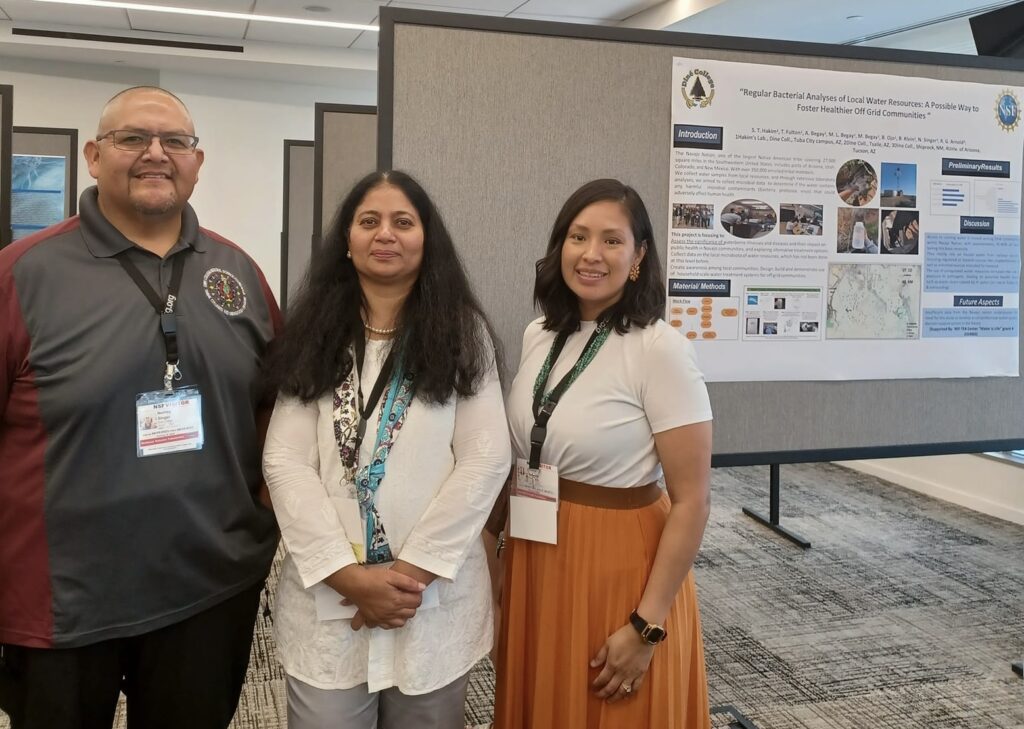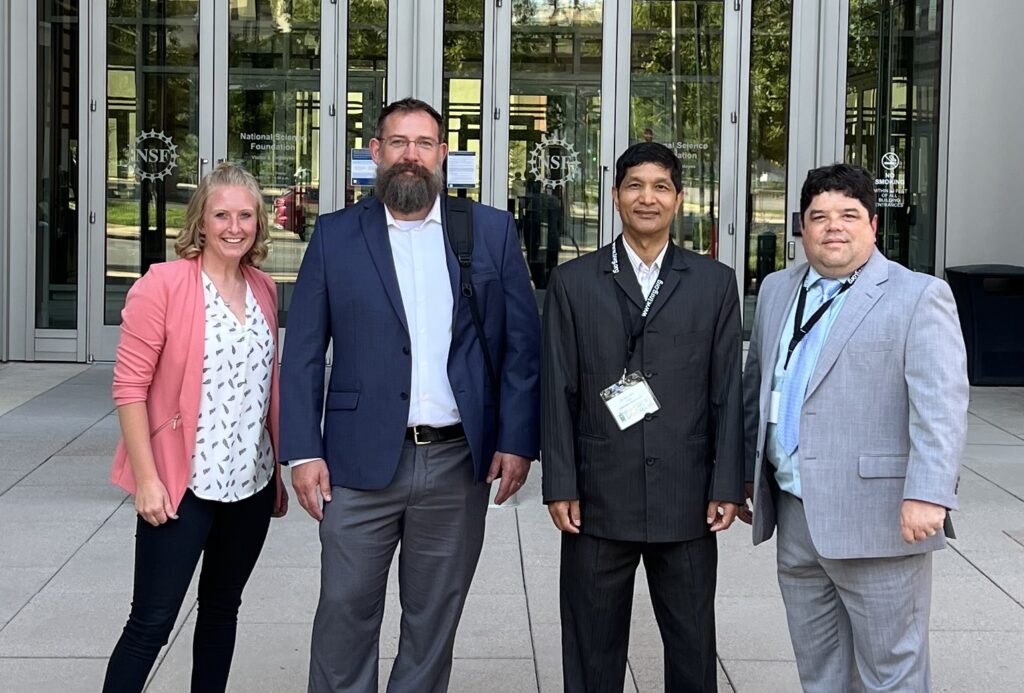The 2023 Tribal Colleges and Universities Program Research Symposium, held at the National Science Foundation’s headquarters, highlighted community-led efforts to protect tribal waterways and provide safe drinking water.
By Melanie Lenart

Water surfaced as a major theme at the annual Tribal Colleges and Universities Program Research Symposium, held in person this August for the first time since the pandemic started. The one-day symposium at the National Science Foundation’s headquarters in Alexandria, VA featured students and faculty from seven different tribally controlled academic institutions as well as the University of Hawaii.
The NSF sponsors the annual symposium to highlights research funded by the agency through its TCUP (pronounced “tea cup”) projects. The Tribal Nations Research Group of Belcourt, ND organized the 2023 symposium. Anita Fredericks, director of the research group, said she was impressed by the quality of the research presented via talks and posters.
“We’re young institutions and I think we’ve come a very long way in the form of research,” Fredericks said. “They’re not second fiddle to anybody.”
“All the presentations were really well done,” Fredericks said, citing the work of Sitting Bull College student Elena Rodriguez, who considered whether the groundwater contaminants she tested showed any correlation to the presence of oil rigs in her study area: the Fort Berthold Indian Reservation, which supplies nearly 20 percent of all oil production in oil-rich North Dakota.
While Rodriguez found only a low correlation between the location of oil rigs and the locations where she found contaminants such as cadmium, sodium and fluoride exceeding environmental standards, she explained how her small sample size and other factors might have influenced her results. Also, Rodriguez identified additional contaminants to test in future studies.
Using results from one research project to suggest a future one is classic western science, with incremental advances in knowledge paving the way for future incremental advances. Fredericks said she was especially impressed that the student’s approach to science reflected Indigenous methodology, such as by working on a topic relevant to her community.
“To me, it’s more about the topic,” Fredericks said, regarding Indigenous research methodology. “Our philosophy is that you don’t just do research for the sake of doing research. You do research that’s meaningful to the community and that’s meaningful to the people that make up the community.”
Other projects related to water followed a similar approach:
- Neilroy Singer, who is working on a master’s degree in biology at Diné College, described a project to purify drinking water in off-grid communities on the Navajo Nation, carried out with other researchers at his tribal college and the University of Arizona;
- James Swierc, a faculty member at Aaniiih Nakoda College, reported on research regarding water resource assessment and water security for Fort Belknap Reservation;
- Shazia Tabassum Hakim of Diné College presented on how conducting bacterial analyses of local wells can lead to healthier communities, sharing credit with students from her lab at Diné College in Tuba City and also with colleagues from the college’s Land Grant Department in Tsaile;
- Victoria Walsey-Honanie, a faculty member of Northwest Indian College, talked about how water governance has affected the connection between the confederated tribes and bands of the Yakama Nation Peoples and the Yakima River.
Other participating colleges included Cankdeska Cikana Community College, with research focused on cellular biology, the University of Hawaii, including a poster on restoration of culturally important fishponds, and United Tribes Technical College, with research involving bladder cancer and inorganic chemistry that could help move forward the production of hydrogen fuel cells.

Keynote speaker Jeremy E. Guinn, director of the Intertribal Research & Resource Center at United Tribes Technical College in North Dakota, described how student research offers many advantages. This includes increasing the relevance of course material, offering an opportunity to infuse culture into curriculum, increasing student retention, and answering questions for the community.
Guinn recommended that educators include research opportunities in a wide variety of settings, such as course-based research, summer research experiences that could include international work, courses specifically focused on research, and capstone courses. He suggested STEM students benefit most when research experiences are incremental throughout their academic career. The one-day research symposium was held on August 9—later than the usual spring semester date, Fredericks noted, so that TCUP institutions could meet in person in the NSF headquarters. The building has been closed since the pandemic started and just reopened in June.
Next year, a two-day symposium will be held at the same Washington, D.C., location from February 28-29.
• • •
Melanie Lenart is a contributor editor for Native Science Report.
Story published September 6, 2023.
• • •
Enjoyed this story? Enter your email to receive notifications.
